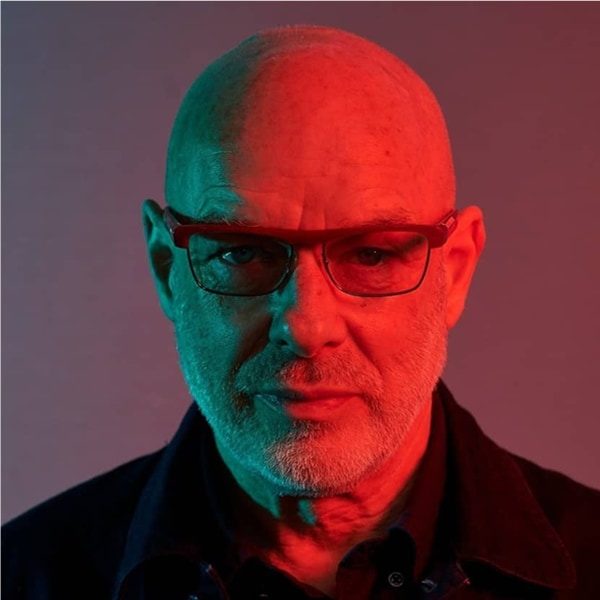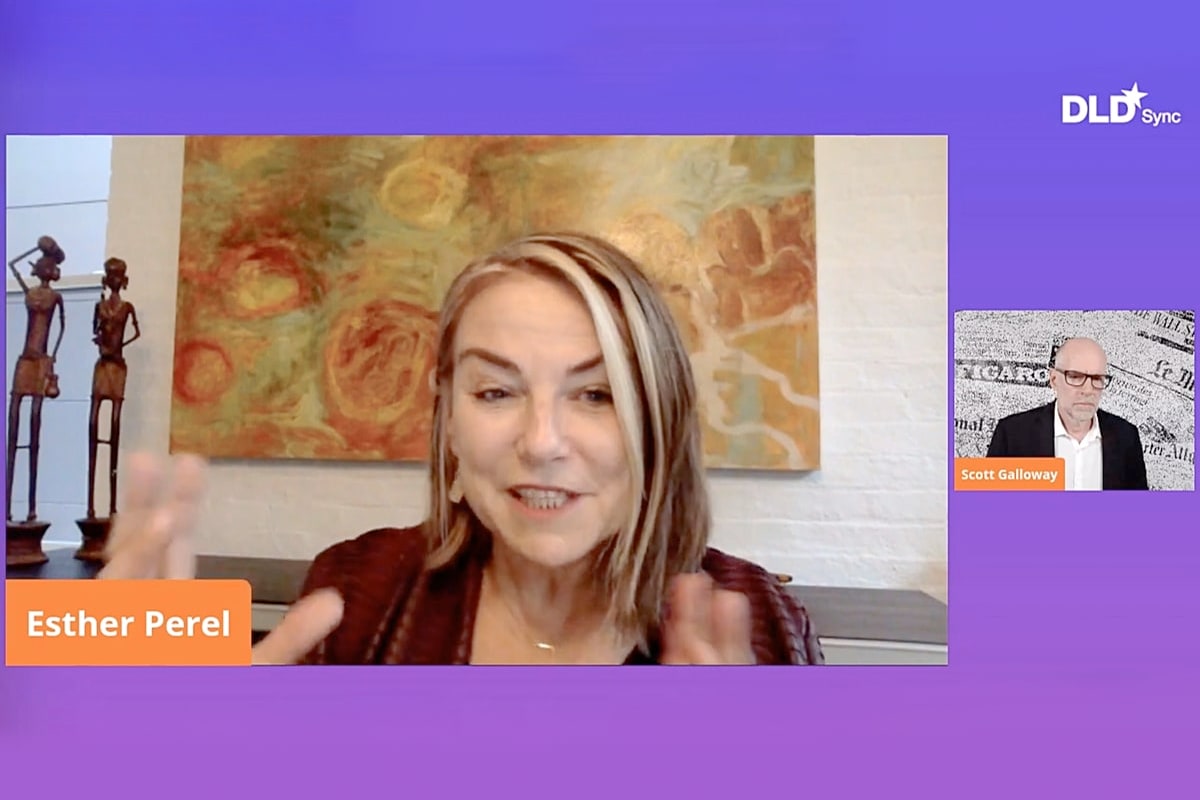DLD Sync

Reflections on Art, Earth and Humanity
Brian Eno is a pioneer of electronic music and an advocate of humanitarian causes. Born in Britain, he co-founded the band Roxy Music before embarking on a solo career of more than four decades that has included art installations, videos and collaborations with many other artists. Eno is a co-creator of the Long Now Foundation and Advisory Board member of the UCL Institute for Innovation and Public Purpose in London. In conversation with Hans Ulrich Obrist, the Artistic Director of the Serpentine Galleries, Brian Eno explored the role of art and artists in a world facing many challenges, from climate change to the current Covid-19 pandemic.

Brian Eno
Artist
Musician, producer, visual artist, activist: Brian Eno first came to international prominence in the early 1970s as a founding member of the British band Roxy Music. To date he has released over 30 albums of his own music and is a founder-member of the Long Now Foundation, a trustee of Client Earth, and Patron of Videre Est Credere.

Hans Ulrich Obrist
Serpentine Galleries
Hans Ulrich Obrist is Artistic Director of the Serpentine Galleries, London. Prior to this, he was the Curator of the Musée d’Art Moderne de la Ville de Paris. Since 1991 he has curated more than 250 shows. Obrist’s publications include A Brief History of Curating, Project Japan: Metabolism Talks with Rem Koolhaas, Do It: The Compendium, Think Like Clouds and Ai Weiwei Speaks.
Video

Sync Scroll
| Time | Topic |
| 0:05 | Intro by Steffi Czerny |
| 3:45 | Happy birthday, Brian Eno! |
| 5:10 | The backstory of Mixing Colours, Eno’s newest album, a collaboration with his brother Roger. |
| 7:45 | Vinciane Despret, What Would Animals Say If We Asked the Right Questions? |
| 8:15 | What connects soundscapes and landscapes? |
| 8:40 | Why recording studios created a new art form that should have its own name. |
| 9:30 | Listen to the Nuzik: “It’s no more like traditional music than cinema is like traditional theater.” |
| 10:55 | Music has become an ever-present treat, “no longer fixed to time or location”. |
| 12:15 | A pop record that’s 1:38 minutes long. |
| 12:50 | Generative music: The composer creates rules and lets the system carry them out. |
| 15:25 | Wind chimes as an instrument in generative music. |
| 17:55 | A close relationship to science. “The description of the system is as complex as the system itself.” |
| 18:40 | The composer: an architect… |
| 19:35 | …or a gardener designing musical landscapes? |
| 20:30 | Why every artist should know John Horton Conway’s Game of Life. |
| 22:40 | Grey Briefings research paper: What if Covid-19 lasted for a year or more? |
| 25:00 | Social implications of generative music and a “bottoms-up approach” to solving complex problems. |
| 25:30 | Why the focus of a planned Serpentine Galleries exhibition of Brian Eno’s work evolved from music to climate change. |
| 27:15 | Approaching future challenges with a bottoms-up approach. |
| 29:30 | The biggest social revolution in human history. |
| 29:55 | An exhibition that says, “We’re all in this together. Let’s start the conversation!” |
| 30:25 | Building a bridge between art and society. |
| 31:50 | Brian’s book recommendations: Kate Raworth, Doughnut Economics, and The Entrepreneurial State by Mariana Mazzucato. |
| 33:10 | The myth that has fuelled Silicon Valley. |
| 33:50 | Usually the community pays for long-term research – but successful tech companies often try to minimize their tax obligations. |
| 35:30 | Traditional economics undervalues essential work often done by women. |
| 40:00 | Covid-19 as a “lengthy experiment in re-discovering ourselves”. |
| 41:30 | How dealing with the corona crisis is pushing people to overlook their differences, healing wounds. |
| 42:30 | Why countries in a crisis like this “almost inevitably have to become socialist”. |
| 44:00 | “Art is a powerful tool. It’s like fire. It can be quite dangerous as well.” |
| 45:40 | The importance of art in human society. |
| 50:35 | Learning to surrender. |
| 53:00 | Sex, drugs and rock ’n’ roll: Situations “where we volunteer to surrender”. |
More DLD Sync

Covid-19: The Death of Eros?
